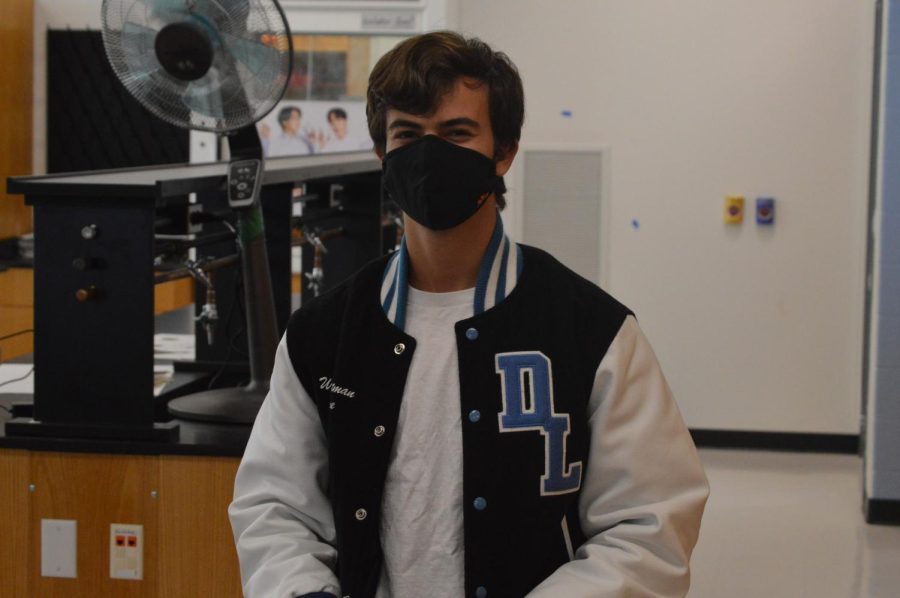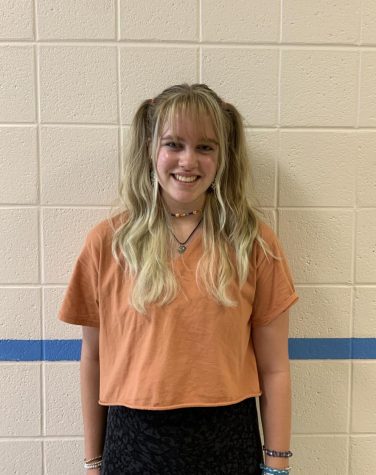“This is what school is about”: Community reflects on significance of in-person learning
December 17, 2021
After a year and a half of Zoom classes and missed community traditions, students and faculty reacquainted themselves with in-person school. This readjustment was different for every individual at Whitman, but three months into the hustle and bustle of the new academic year, many community members have found fulfillment in distinct parts of their face-to-face learning experiences. The slideshow above covers it all, from field hockey games to lunch periods in the media center to “the little things.”
Jack Mandell, junior
Junior Jack Mandell’s previous school year over Zoom helped him recognize that socialization makes a significant difference in enriching his academic experience. Mandell is proud to be a member of the Whitman Drumline, and he has cherished his regained ability to spread his love for music and school spirit around the school. Mandell’s favorite part of this school year, however, has been pursuing knowledge, which he feels he wasn’t able to do as efficiently online.
“Last year, I made some unfortunate decisions while in class or after school involving my phone when I should have been paying attention,” Mandell said. “Being in school helps me stay attentive. I’m learning faster and that’s what school’s about: learning.”
Maddie Belanoff, sophomore
Before August 30, the first day of the 2020-2021 school year, sophomore Maddie Belanoff had never stepped foot in Whitman’s building. Belanoff has been a part of the NOTA acapella group, the fall musical and the chamber choir. This year presented her with her first opportunity to participate in these programs in person. While walking through the halls of a new school initially felt stressful, Belanoff said she is over the moon to go to rehearsals on the weekends and hang out with her fellow musicians face-to-face.
“[Over the pandemic] I learned how much I craved social contact and seeing my friends,” Belanoff said. “I definitely learned how much team-building there is in a drama program or in Choir and how much a program lacks when we’re all on a Zoom screen.”
Alexis Mazur, media specialist
Since students have returned to the school building, media specialist Alexis Mazur has noticed an increase in students who check out library books from the years prior to the pandemic. During virtual learning, Mazur worked to ensure that students could still access and enjoy e-books through Whitman’s online media service. The media center now serves as a hub for students not only to read but to spend time with each other and study for classes before school, during lunch and during off periods. Mazur couldn’t be more thrilled about it.
“Most teachers go into this profession because they enjoy the interaction with students,” Mazur said. “I myself, as well as most teachers, can thrive on that interaction and feedback from the students. That almost feeds your teaching and your energy.”
James Kuhn, AP Calculus teacher
AP Calculus teacher James Kuhn found that handling lessons over Zoom helped him modify his teaching style in ways that he has continued using, making in-person teaching even more effective. Last year, Kuhn missed interacting with his students face-to-face more than anything, he said. To streamline his pupils’ transition to in-person education, Kuhn has collaborated with other math teachers to pinpoint spots in their curricula that students may have difficulty with.
“They haven’t done this for a long time, so I do see some stress and anxiety with it,” Kuhn said. “But I think being face-to-face and seeing people every day has been really positive for both students and for teachers.”
Lakshmi Sundrum, freshman
Freshman Lakshmi Sundrum feels that the transition back to in-person education has allowed her to step out of her shell. Isolation and uncertainty during virtual school took a toll on Sundrum’s mental health, but these negative emotions have allowed her to grow, Sundrum said. In the face-to-face learning environment, she now feels completely comfortable interacting with her classmates and sharing her opinions without fear of judgment.
“[The pandemic] definitely took a toll on everyone’s physical and mental health,” Sundrum said. “I wasn’t going outside as much and I felt pretty lonely, but now I’d say I’m a lot more extroverted, and I think that’s a positive change.”
Allison Udler, senior
For senior Allison Udler, coming back to in-person school presented itself as a social awakening. Udler spent this past August becoming closer with her varsity field hockey teammates while the team prepared for their fall season. Their team’s chemistry strengthened as they began to practice once again, Udler said, and in November, the field hockey team made it to the state semifinals.
“I just remember getting on the field for the first time and playing the first scrimmage,” Udler said. “It was a feeling I hadn’t had in so long. It was just a rush of endorphins, honestly. I was just so happy and in my element.”
Michelle Kim, choir teacher
Choir teacher Michelle Kim hadn’t completed her first year teaching at Whitman before the pandemic abruptly halted in-person instruction. Over quarantine, Kim felt disconnected from her students and her new community. She missed walking into the choir room each morning and bonding with her students through music, she said. Now back in person, Kim has frequently brought her new dog, Frankie, to school as a stress reliever for her students. She also conducted icebreaker activities in class to help her students get to know the new choir members and reconnect with returning musicians.
“It’s just little things that we took for granted before the school closed down,” Kim said. “The biggest thing is just really appreciating what we have.”










